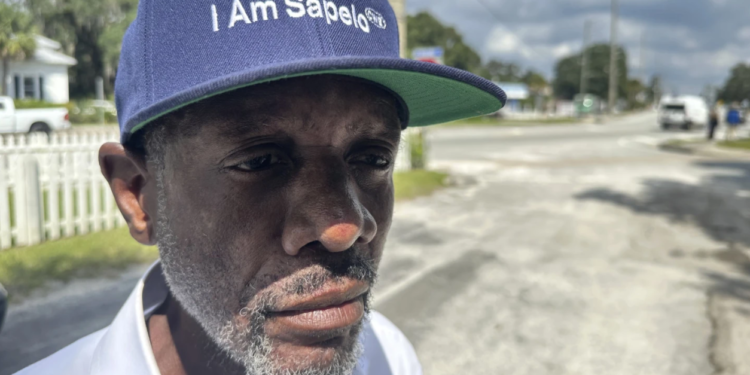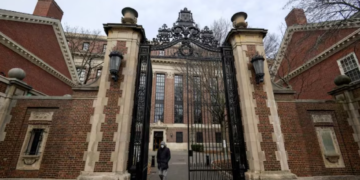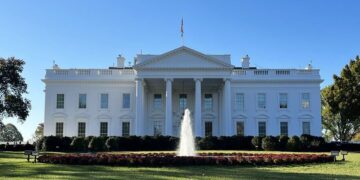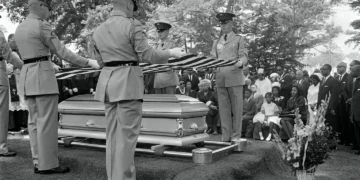Sep 20, 2024 Story by: Editor
DARIEN, Ga. (AP) — County commissioners in Georgia who recently lifted development restrictions protecting one of the South’s last Gullah-Geechee communities, comprised of Black descendants of slaves, requested a judge on Friday to halt an upcoming referendum scheduled for October 1. This referendum would allow voters to potentially reverse the changes.
As of now, over 600 voters in coastal McIntosh County have already participated in the special election since early voting commenced on September 9. However, this process could be abruptly halted if Senior Judge Gary McCorvey sides with the commissioners, who argue that Georgia’s constitution prevents voters from overriding local zoning ordinances.
Ken Jerrard, the attorney representing the county officials, stated during a Friday hearing, “save McIntosh County from being forced to fund an illegal election.”
Residents of Hogg Hummock, a small community on Sapelo Island located about 60 miles (95 kilometers) south of Savannah, along with their supporters, gathered over 1,800 petition signatures to compel a referendum aimed at reversing zoning changes approved by the commissioners last year. These changes effectively doubled the size of homes permitted in the small island enclave, which residents believe would undermine protections established decades ago for Black landowners. Many fear that larger homes could result in rising property taxes, potentially forcing families to sell land that has been held since the emancipation of their ancestors during the Civil War.
Yvonne Grovner, a resident who has lived in Hogg Hummock for four decades, expressed her concerns, stating, “It’s eventually going to force people off the island because they can’t afford to live there. So we’re hoping we can get it reversed. We don’t want these big houses being built.”
On Friday morning, Grovner cast her early ballot against the zoning changes while heading to the courthouse after taking a ferry from Sapelo Island to the mainland.
Hogg Hummock is home to approximately 30 to 50 Black residents, residing in a community of dirt roads and modest houses established by former slaves from Thomas Spalding’s cotton plantation. Scholars note that small communities descended from enslaved island populations—known as Gullah or Geechee in Georgia—are dispersed along the coast from North Carolina to Florida. Their geographic isolation from the mainland has allowed them to preserve much of their African heritage, including their distinctive dialect and traditional skills such as cast-net fishing and basket weaving.
A lawsuit filed by the commissioners contends that while Georgia’s constitution permits special elections to contest certain local government decisions, this authority does not extend to zoning. Jerrard argued that zoning powers are outlined in a different section of Georgia’s constitution, and specific procedures exist for repealing zoning ordinances that do not encompass special elections.
Judge McCorvey appeared to lean toward agreeing with the county’s stance, stating, “You’ve got a high hill to climb to convince me that zoning is subject to this.” He indicated that he may deliver a ruling as soon as Monday.
Attorneys representing the Hogg Hummock residents and Probate Court Judge Harold Webster urged McCorvey to dismiss the county’s lawsuit, asserting that the commissioners lack the legal standing to contest a special election that Webster was authorized to order. Kellye Moore, attorney for Webster, emphasized, “If there are any voters out there who think this is wrong and a waste of taxpayer dollars, those people should come forward.”
Both parties referenced a Georgia Supreme Court ruling from the previous year, which upheld a 2022 referendum by another county that blocked plans for a commercial rocket launchpad. Jerrard noted that since that case was brought before the state Supreme Court by Camden County commissioners, it demonstrates that the commissioners have the standing to challenge special elections.
Moore also highlighted a separate concurring opinion from a Georgia justice in the spaceport case, which mentioned that special elections could be used to challenge “zoning ordinances and decisions, taxation rates, and budgeting decisions.”
In addition to seeking to reverse the county’s zoning changes through the referendum, Hogg Hummock residents have filed a separate lawsuit alleging racial discrimination and violations of their due process rights by county officials. They claimed to have been taken by surprise when the county proposed in August 2023 to weaken development restrictions in Hogg Hummock, which had been implemented nearly three decades prior to protect the land ownership of Black residents. Less than a month later, the commissioners voted to double the maximum size of homes permitted in the community. Source: AP News

















